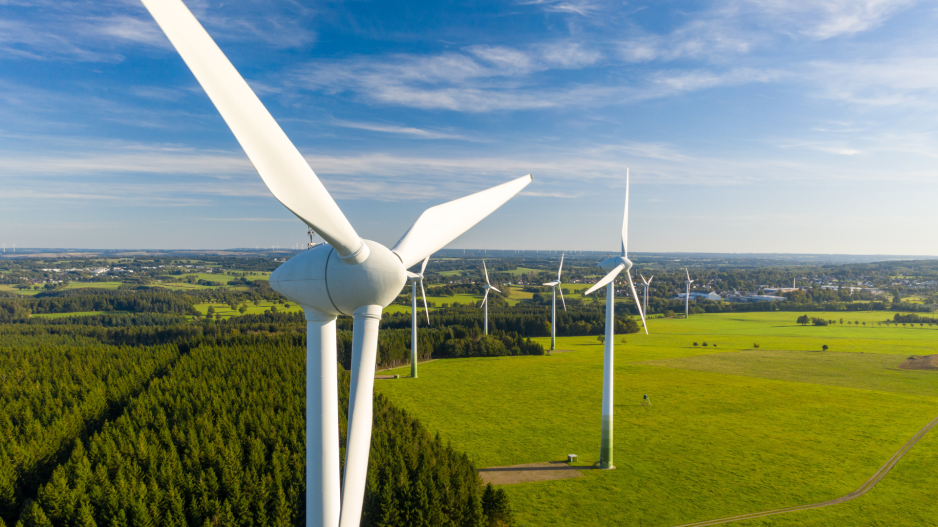Can Cyprus Build a Greener Tech Future?
Tech-driven Sustainability And Innovation in Energy & Construction
As the global community intensifies its focus on sustainability, Cyprus is exploring avenues to integrate green technologies into its economic framework. The island's commitment to environmental stewardship, coupled with its burgeoning tech sector, positions it uniquely to lead in the green tech revolution.
Cyprus is at a pivotal juncture in its pursuit of a greener, tech-driven future. With its abundant sunlight, strategic location, and commitment to sustainability, the island nation is leveraging technology to transform its energy and construction sectors.
Cyprus has increasingly embraced renewable energy as a cornerstone of its green transition, capitalizing on its geographic advantage — over 300 days of sunshine annually — to develop a robust solar power infrastructure. In recent years, the island has ramped up its photovoltaic (PV) installations, with over 500 megawatts of installed capacity already contributing to the national grid. This accounts for a significant portion of the country's electricity needs and positions solar energy as the backbone of Cyprus's renewable energy ambitions.
Driven by both EU climate goals and domestic energy security concerns, the government has committed to reaching 35% renewable energy in electricity production by 2030, as part of its Integrated National Energy and Climate Plan (NECP). This target is being pursued through a combination of large-scale solar parks, such as the high-profile Vassiliko solar park project, and decentralized rooftop PV systems installed by homeowners, businesses, and public institutions. Subsidy programs and net metering schemes have also encouraged broader participation, allowing consumers to produce their own electricity and feed excess power back into the grid.
In parallel with its solar energy expansion, Cyprus has begun exploring the potential of green hydrogen — a clean fuel generated from water through electrolysis powered by renewable sources. In 2024, the island launched its first green hydrogen pilot project, GreenH2CY, supported by the European Union’s Horizon Europe program and coordinated by the Cyprus Institute. The initiative aims to demonstrate the viability of hydrogen as a sustainable alternative in the energy and transport sectors. By using solar power to drive electrolysis, the project produces zero-emission hydrogen that could be used to decarbonize heavy-duty vehicles, replace fossil fuels in industrial processes, and eventually be blended into the country’s future gas network.
The GreenH2CY project also has a strong research component, focusing on optimizing production efficiency and evaluating the feasibility of scaling up hydrogen use across multiple sectors. If successful, it could pave the way for Cyprus to establish a localized green hydrogen economy, reduce its carbon footprint by thousands of tons annually, and contribute to broader European decarbonization goals.
Cyprus is aligning its construction sector with EU climate goals by accelerating the shift toward zero-emission buildings and smart urban infrastructure. In line with the EU directive mandating that all new buildings be zero-emission by 2030 (2028 for public buildings), developers are increasingly integrating energy-efficient systems, solar panels, smart meters, and sustainable materials into new projects.
Public buildings are leading the way through EU-funded upgrades, while training initiatives like BUILD UP Skills Cyprus are equipping industry professionals with the tools needed to meet green standards. Private sector adoption is growing too, driven by rising energy costs and stricter environmental regulations.
In urban planning, smart city initiatives are reshaping how Cypriot cities function. The Smart Nicosia project, in collaboration with Cyta and Nokia, is implementing smart lighting, real-time traffic monitoring, and environmental sensors to improve efficiency and sustainability. Other municipalities are following suit, using EU funds to digitize infrastructure and enhance public services.
Cyprus’s geographic isolation has long made it one of the few EU member states not connected to the continental electricity grid. This has left the country vulnerable to energy security risks and heavily reliant on imported fossil fuels. To address this, Cyprus is making bold moves to physically and strategically connect with the broader European and Eastern Mediterranean energy networks — a step seen as critical to unlocking the full potential of its renewable energy production.
At the heart of this effort is the Great Sea Interconnector (GSI) — a landmark €1.94 billion project partly funded by the European Union. This undersea cable will link the power grids of Cyprus, Greece, and Israel. Spanning approximately 1,200 kilometers and reaching depths of over 3,000 meters, it will be the world’s longest and deepest submarine electricity cable once completed. Its initial capacity of 1,000 MW, with future potential to scale to 2,000 MW, is expected to significantly stabilize Cyprus’s grid and enable the export and import of clean electricity. Construction is underway, with a target completion date by the end of 2027.
These interconnections are not just about energy exchange—they also position Cyprus as a regional energy hub. By linking with Israel, a country investing heavily in solar and natural gas, Cyprus gains access to surplus renewable electricity that can help balance supply during peak demand or low generation periods. Conversely, Cyprus will be able to export its own solar power when local production exceeds domestic needs, especially as solar capacity increases.
In parallel, Cyprus is participating in the EastMed Gas Pipeline initiative, which, while still under discussion, could further diversify the country’s energy mix by facilitating the transport of natural gas from offshore fields in the Eastern Mediterranean to Europe. Though more controversial from a climate perspective, it represents a transitional step toward energy diversification and geopolitical leverage.
These large-scale infrastructure investments also support Cyprus’s ambition to become fully integrated into the EU Internal Energy Market. A connected grid means greater competition, improved energy efficiency, and reduced electricity prices for consumers. It also enhances resilience against external shocks, such as geopolitical tensions or fuel supply disruptions.
The Cypriot government has recognized that achieving a sustainable, tech-driven future hinges on strong policy direction, regulatory reform, and targeted investment. One of the government’s cornerstone policies is the Strategic Plan for 2024–2026 led by the Ministry of Energy, Commerce, and Industry. This multi-year roadmap outlines Cyprus’s priorities for energy diversification, green innovation, and digital transformation. It includes substantial funding for the adoption of renewable energy systems, energy efficiency upgrades in buildings, and the promotion of electric mobility. Key incentives include grants for solar panel installations, subsidies for energy-efficient appliances, and support schemes for businesses investing in sustainable technologies.
The government has also committed to investing €500 million by 2026 in climate action and clean energy projects. These funds are drawn from a combination of national budgets, EU recovery mechanisms, and structural funding programs. This investment portfolio spans renewable energy production, the greening of transport infrastructure, circular economy projects, and the digitalization of the energy grid to support smart metering and load management.
In the construction sector, the “Save and Upgrade” scheme offers co-financing for deep energy retrofits in residential and commercial buildings, contributing to reduced emissions and lower energy bills. Similar support is available to municipalities aiming to retrofit public infrastructure such as schools and administrative buildings. These initiatives also support job creation in green construction and energy services, helping to build local capacity in emerging fields.
Cyprus stands at a pivotal moment in its pursuit of a sustainable, tech-driven future. With abundant solar resources, strategic investments in renewable energy, and a commitment to energy efficiency, the nation is making significant strides toward environmental sustainability.






